#saint francis of assissi
Text
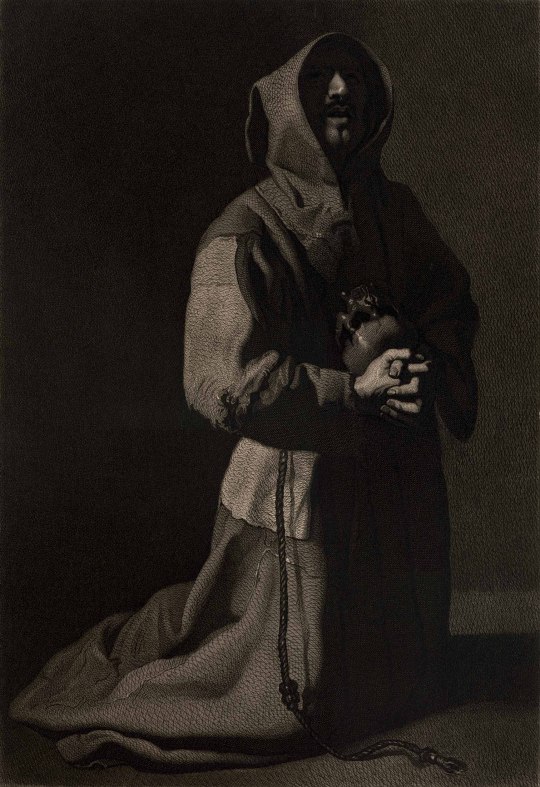
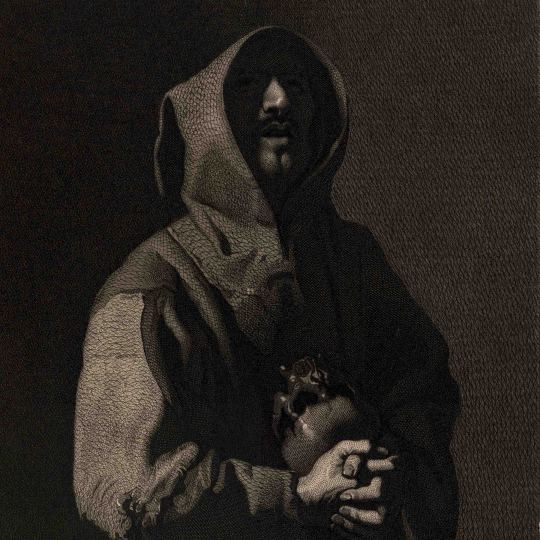



#art#etching#engraving#meditation#religious art#franciscans#catholicism#skull#saint francis of assissi#francisco de zurbaran#alponse charles masson#st. francis in prayer 1849
203 notes
·
View notes
Text
The best books I read in 2022
The best books I read in 2022
I’ve had to keep my head down and push forward this year, not coming up for air in any meaningful ways, yet despite this year being the most intense year of my adult life, professionally- and scholastically-speaking, I was still able to sustain my first and most abiding love of reading (even if I had to supplement it with more audiobooks and less handheld books than I prefer). I am just now…

View On WordPress
#An Apology for Idlers#Ann Patchett#Books#David Sedaris#Frederick Buechner#G.K. Chesterton#Hall of Uselessness#Happy-Go-Lucky#Life at the Bottom#literature#Nathan Coulter#Nikolai Gogol#P.G. Wodehouse#Robert Louis Stevenson#Saint Francis of Assissi#Simon Leys#Simone Weil#The Angel That Troubled the Waters#Theodore Dalrymple#These Precious Days#Thorton Wilder#Vladimir Nabokov#Wendell Berry
1 note
·
View note
Text

#traditional catholicism#traditional catholic images#traditional catholic saints#traditional catholic saints images#traditional catholic saints quotes#st. francis of assissi#the founder of franciscan order#franciscan deacon#franciscan saint
5 notes
·
View notes
Text
OCTOBER Birthstone Rosary / St. Francis of Assisi
St. Francis is celebrated October 4
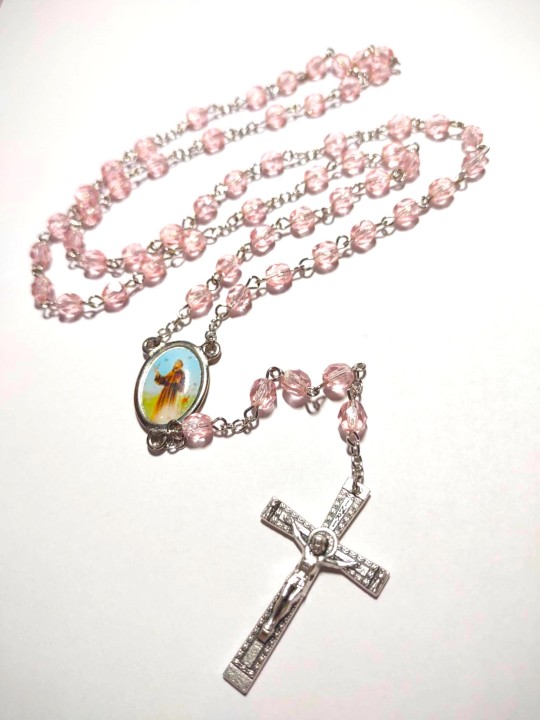
#st francis rosary#st francis of assissi#francis of assisi#catholic saints#roman catholic#catholic#catholic rosary#rosary#october birthstone#october#jesus#mary#christian#hndmdbystephanie#etsy
20 notes
·
View notes
Photo




5 notes
·
View notes
Text

Add MS 42130 f.60v
Saint Francis of Assissi with stigmata surrounded by animals and another friar
British Library
78 notes
·
View notes
Text
i went to the butchart gardens with my mom today. the is first time in my adult life i have actually gotten her alone for more than a few minutes. it drizzled all day, cold-in-the-bones kind of damp, but the gardens are exactly how i remember--opulent and edwardian and uncomfortably british. it exudes the atmosphere of a royal auntie, one who thinks exacting control of her garden validates all her good intentions, colonial though they may be.
the place radiates aesthetic philanthropy and invisible labour. on display is a letter written to the owners humbly thanks them for allowing the orphans to visit and drink tea among them. a statue allows visitors to emulate saint francis of assissi's halo of birds in flight. ('with enough goodness, you, too, can speak to nature'.) the garden staff work on the large wire frames of animals across the garden, pulling out the dead brown moss and replacing it with dead green moss. (is there a more on-the-nose metaphor for colonialism?)
over a million visitors come each year. it is genuinely fun and pretty. my mom and i ride the carousel, the fastest in bc. i take her to afternoon tea, where she refuses to eat any 'grain combined with potato product' (this means any bread with baking powder.) instead she digs out the innards of the sandwiches and takes the smallest bites of the fragrant layered lemon cake while i eat everything she cant. (is there a more on-the-nose metaphor for the child-parent relationship?)
over tea we discuss my father's family. my grandmother's electroshock therapy (already known family fact) and my grandfather's physical abuse of her (fun new family fact). how my uncle left his cats to cover the family house in their shit. how my father now makes her keep her phone in a faraday cage, her credit card in an altoid tin.
my father calls me, later. she is not picking up her phone, he says. i miss you, he says. i hope you are both okay, he says.
now, behind me, she blasts her jehovahs witness meeting. tells everyone on the zoom call that the gardens are just like the garden of eden. even with earplugs and earphones on maximum i cant drown it out (is there a more on-the-nose metaphor for leaving an abusive religion?)
she spent the day misgendering me and my partner, calling me by the wrong name. we are now the physically closest we have been in years. i feel grateful this is our only night in the same room. i sit next to the space heater and try to keep out the chill.
2 notes
·
View notes
Text

Painting by Sue Betanzos
* * * *
Yesterday was the feast day of Saint Francis of Assissi, patron saint of animals and ecology.
Many of the old buildings of Assissi are built of heartful pink -colored stones. The pope of his day declared Assissi a pilgrimage place one could go to for the remission of sins.
A thornless rose that previously had thorns, but which St. Francis threw himself into upon feeling some lustful feelings for St. Clare, grew there for many years, replaced by another thornless rose.
There are stories of Rumi and St. Francis meeting. In the building that houses his Tomb is his patched woolen cloak, which Sufis of the day also wore. Every time a Sufi became “enlightened,” the teacher would have their cloak divided into patches which would be distributed amongst the other dervishes to be sewn onto their own cloaks, distributing this enlightened energy.
[Leila L'Abate]
2 notes
·
View notes
Text

That little old lady left....I don't know where she went it's not a cult....I assume the light was directly on her and somewhere else the police told her too much and rule breaks
She is kind of friends with everybody.....so if it's gita learning and ma....she is a little intimidating with saintly conduct....
Oh my God ma...could the odor have been that eve ill....
She does lay pretty still kind of a long time....
It would be better if Sisters came to get her for a rest stay....
Uhm Barcelona was rated number one in medical schools....so it's kind of questionably heretical that way....she is friends of everybody and some of those men are truly evil....
Saint Francis of assissi....it all has a maker......
Ma....who did make you this way....
Mentals I think arrived in the area of the youthful privileged male variety so maybe he her case worker finally gave her her stuff instead of afflicting her with vengeful bitchy still a girl ladies
Ma who is your maker.....and what is with little bitch is a player too....
Awful youtube subscription why wouldn't she let her stay over
I was born in the Chinese astrology year of the monkey and when people get used to younger a bit improved standards the elderly aren't fixated on so much anymore....and eventually shock effect of capitalist platoons will massacre women and children will bring privileged men who stop making the area an easy stop off for why does it die interest groups
I mean I could believe them if my 🆔 came in this would stop or if I found the right community and really the elderly crisis doesn't stop so there is always stuff to do if you will put yourself in their place.....
Research....gross
Well God what is with little bitch lady girl femmes always only having a robotic specification to revenge.....uhm I'm sorry but life has not been that unkind to you....
Dh Lawrence hell row well damn everything of your quaint world then....
Why for what for whom.....
Ma her own people kept telling her she has to be like them and merely a sycophant on a big man that's mean.....
Mean....mean....
Texas track stars she is from the states but her Jamaican homosexual other to her and her projects sometimes
She is libran like so sometimes she does appear very suffering and weak and then she just gets up with a lot more endurance then expected....
0 notes
Text
Septon Meribald: Septon to the Poor
Septon Meribald is a character who we see for a short while through Brienne’s POV in A Feast for Crows, and manages to become a popular minor character in both the book and series. Alongside Arya’s journey through the riverlands from ACOK to ASOS, Brienne’s journey highlights the effects of war on the civilian population, and Meribald serves as an important voice for the smallfolk during this arc. Meribald as per Martin’s characterization, wouldn’t be out of place in any medieval fantasy when you first meet him, but is also a three-dimensional character with a past that would make him out of place in that same setting. He is best remembered for his “Broken Men” speech in the chapter we meet him. The speech is eloquent in how it captures some of the grim realities of war, and contains some of Martin’s best prose. However, while I will analyze his speech, I think he deserves a more thorough examination and analysis based on more than just one speech.
Introduction:
"There's a man," Ser Hyle said. "A septon. He came in through my gate the day before you turned up. Meribald, his name is. River-born and river-bred and he's served here all his life. He's departing on the morrow to make his circuit, and he always calls at Saltpans. We should go with him."
- AFFC Brienne V
The donkey carried such a heavy load that Brienne was half afraid its back would break. "Food for the poor and hungry of the riverlands," Septon Meribald told them at the gates of Maidenpool. "Seeds and nuts and dried fruit, oaten porridge, flour, barley bread, three wheels of yellow cheese from the inn by the Fool's Gate, salt cod for me, salt mutton for Dog . . . oh, and salt. Onions, carrots, turnips, two sacks of beans, four of barley, and nine of oranges.”
- AFFC Brienne V
Meribald is introduced as a traveling septon who works and lived in the riverlands his whole life.
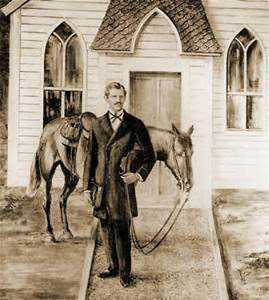
Circuit riders, as they were called, were a not uncommon feature in the early United States, especially west of the Appalachians as many settlers pushed westward. With an increase in the US population and many people living in rural areas, the Methodist church had to deal with too few ministers to staff parishes in these small, rural and some of them, new communities. They also had to deal with the fact that permanent, full-time ministers weren’t economical and have enough “work” in a community with a very small congregation. The US Methodist Church dealt with this issue by assigning ministers multiple officiates in an area that formed a “circuit” as the minister was to travel to and attend each parish on a regular basis.
Meribald is a septon in this vein who makes his regular circuit providing religious services to the villages that are too small and poor to have a septry as well as distributing food to the poor. He provides both material and spiritual sustenance to the smallfolk throughout the riverlands.
“The septon could neither read nor write, as he cheerfully confessed along the road, but he knew a hundred different prayers and could recite long passages from The Seven-Pointed Star from memory, which was all that was required in the villages. He had a seamed, windburnt face, a shock of thick grey hair, wrinkles at the corners of his eyes. Though a big man, six feet tall, he had a way of hunching forward as he walked that made him seem much shorter. His hands were large and leathery, with red knuckles and dirt beneath the nails, and he had the biggest feet that Brienne had ever seen, bare and black and hard as horn.”
- AFFC Brienne V
“I have a weakness for the orange, I confess. I got these from a sailor, and I fear they will be the last I'll taste till spring."
- AFFC Brienne V
His unkempt appearance of a windburnt face, leathery hands, dirt-filled nails, and black, hard feet give the picture of a man who has lived a hard life without much of anything in the way of luxury, and if anything, avoids it. He is a down-to-earth man whose only luxury he’ll let himself have is oranges, and he gives most of those away. His feet show that he doesn’t own any shoes, something even most smallfolk wear, and he goes barefoot with a simple wooden staff like the popular Saint Francis of Assisi (more on him later). The dirt in his nails show he doesn’t seem to adhere to the maxim of cleanliness being close to godliness, and with his bare feet, give him a kind of earthiness, being close to the land and its people. Septon Meribald is described as tall, but his posture makes him appear smaller, a physical representation of Meribald’s humble attitude with the way he lowers himself towards the people he interacts with. Generally, they are the smallfolk where a septon like himself would normally enjoy a marginal higher status, and one can see the gentleness he shows towards them. He confesses “cheerfully” his illiteracy, which resulted from a lack of formal education that is usually provided by maesters to the upper classes in castles and the Citadel. That is part of his veneration of simplicity rather than anti-intellectualism with all the passages and prayers he knows he learned by rote like Brutha from Practchett’s Small Gods. His unkempt appearance and illiteracy also give the misleading impression of a man who seems simple, but actually possesses a profound intelligence.
Septon Meribald walking beside them with his quarterstaff, leading a small donkey and a large dog
- AFFC Brienne V
Septon Meribald is always accompanied by two animal companions: a donkey and a dog. The donkey is an animal that features prominently in the Gospels. It was used to carry the pregnant Virgin Mary to the inn where she gives birth to Jesus, and later was used as a mount for Jesus upon entering Jerusalem. Donkeys were (and still are) used as beasts of burden meant for carrying loads on their backs and pulling carts and plows. They also were occasionally used as mounts by those who were too poor to afford horses. They were and still are considered to be the cheapest form of agricultural power after human power. That is opposed to the more expensive stallions, especially coursers and destriers, that are often used for cavalry or war chariots. That Meribald would use a donkey as opposed to a stallion fits perfectly with his veneration of poverty and simplicity as well as his anti-war views which we’ll get into later.
"It must make for a lonely life, septon."
"The Seven are always with me," said Meribald, "and I have my faithful servant, and Dog."
"Does your dog have a name?" asked Podrick Payne.
"He must," said Meribald, "but he is not my dog. Not him."
The dog barked and wagged his tail. He was a huge, shaggy creature, ten stone of dog at least, but friendly.
"Who does he belong to?" asked Podrick.
"Why, to himself, and to the Seven. As to his name, he has not told me what it is. I call him Dog."
- AFFC Brienne V
"Dog keeps me safe upon the roads, even in such trying times as these. Neither wolf nor outlaw dare molest me when Dog is at my side."
- AFFC Brienne V
Meribald is also accompanied by his Canine Companion, a large sheepdog he simply calls “Dog.” Dog isn’t used for hunting, a common leisure activity for aristocrats as well as one of survival for smallfolk, nor is he a regular pet. He appears to just be Meribald’s traveling companion as well as protector. He is described as a big dog that is capable of killing wolves, but is nonetheless friendly. The Starks and their direwolves will make you forget that wolves have a history of usually being portrayed in literature, especially religious texts, as evil with the shepherd protecting his flock from wolves is a common trope in Christianity. Dog fulfills the function of a sheepdog for Meribald, protecting him from wolves and outlaws, and his presence helps to emphasize Meribald acting as a shepherd to the smallfolk wherever he goes. Meribald’s treatment of Dog is unusual compared to other dog owners in both Westeros and real life. He doesn’t do something so simple as name the dog, because the way he sees it, he doesn’t own Dog, and thus, has no right to impose a name on him. Meribald treats Dog, not as a pet, but as belonging “to himself, and to the Seven,” an autonomous creature entitled to the dignity and respect of a living being. People demonstrating their humanity or lack thereof through their treatment of animals and relationship with nature is a trope used throughout fiction. Fantasy is no exception with Tolkien portraying the good races, like elves, as in harmony with nature while portraying the bad races, like orcs, as at odds with nature, exemplified by the eagles and trees (Ents) aiding the good races against the bad. Francis of Assisi even remarked on the connection between man’s relationship with animals and that with his fellow man: "If you have men who will exclude any of God's creatures from the shelter of compassion and pity, you will have men who will deal likewise with their fellow men." He wasn’t the only one to observe that. Philosopher Immanuel Kant stated “He who is cruel to animals becomes hard also in his dealings with men. We can judge the heart of a man by his treatment of animals.” Meribald’s treatment of Dog makes him stand out in his treatment of all life as deserving of kindness and compassion, including those valued the least by society: the poor and animals.
"The brothers will ferry us over on the morning tide, though I fear what we shall find there. Let us enjoy a good hot meal before we face that. The brothers always have a bone to spare for Dog." Dog barked and wagged his tail.
- AFFC Brienne VI
"And your tides," suggested Meribald. Dog barked agreement.
- AFFC Brienne VI
"I shall make time," said Meribald, "though I hope you have some better sins than the last time I came through." Dog barked. "You see? Even Dog was bored."
- AFFC Brienne VI
"Gladly," said Meribald. Dog barked.
- AFFC Brienne VI
"It is being common-born that is dangerous, when the great lords play their game of thrones," said Septon Meribald. "Isn't that so, Dog?" Dog barked agreement.
- AFFC Brienne VII
"We'll have silver. Else you can sleep in the woods with the dead men." Willow glanced toward the donkey, and the casks and bundles on his back. "Is that food? Where did you get it?"
"Maidenpool," said Meribald. Dog barked.
- AFFC Brienne VII

It helps that the author manages to give Dog an almost human-like quality. There are plenty of scenes where Dog barks right after Meribald says something as if Dog understands what he is saying and expresses agreement with him, and even Meribald acts as if Dog actually does. It manages to emphasize the bond between the two as fellow companions with Dog providing protection and Meribald providing food.
Backstory
Now, we go into Meribald’s personal backstory. We learn from the start that he is a lowborn riverman, the son of a peasant. We learn about his life before becoming a septon, and what likely led him to become one. We’ll start with the earliest, his part of the past he mentions right after he delivers his “Broken Men” speech that explains a large part of his character.
The quiet stretched and stretched, until finally she said, "How old were you when they marched you off to war?"
"Why, no older than your boy," Meribald replied. "Too young for such, in truth, but my brothers were all going, and I would not be left behind. Willam said I could be his squire, though Will was no knight, only a potboy armed with a kitchen knife he'd stolen from the inn. He died upon the Stepstones, and never struck a blow. It was fever did for him, and for my brother Robin. Owen died from a mace that split his head apart, and his friend Jon Pox was hanged for rape."
"The War of the Ninepenny Kings?" asked Hyle Hunt.
"So they called it, though I never saw a king, nor earned a penny. It was a war, though. That it was."
- AFFC Brienne V
Meribald is a veteran of the War of the Ninepenny Kings, and he fought when he was just a boy aged no older than thirteen. It puts his comments to Podrick Payne: "I have never known a boy who did not love the Warrior” in another light. Meribald was probably no exception to the rule. He had his head filled with the songs praising war when he first enlisted to avoid feeling left out, and thought it would be a glorious adventure the way Quentyn Martell did of his journey to Daenerys. This romantic notion is further emphasized by his older brother William saying Meribald could be his squire as if he were a knight, which the protagonist in these kinds of songs usually is. And as is the case in the series, these romantic notions crashed into brutal reality as Meribald lost his three brothers along with a family friend. It is no secret that war can be a traumatizing experience with many veterans suffering from post-traumatic stress disorder (PTSD). I once studied alongside a veteran of US wars in Iraq and Afghanistan in college who was around my current age. He confessed to suffering from PTSD to the point that when he sat down for lectures he always sat at the end of the seat rows so no one could sneak up on him. Of course, while he was an adult when he fought, Meribald was still a child, even by Westerosi standards. His knowledge of broken men is so detailed, because he was one. His words at the end of the chapter show that the trauma from that experience still haunts him to the present-day. After the war, Meribald couldn’t adjust to life like it was before, and that experience is ultimately what led him to decide to become a septon.
"Going barefoot was my penance. Even holy septons can be sinners, and my flesh was weak as weak could be. I was young and full of sap, and the girls . . . a septon can seem as gallant as a prince if he is the only man you know who has ever been more than a mile from your village. I would recite to them from The Seven-Pointed Star. The Maiden's Book worked best. Oh, I was a wicked man, before I threw away my shoes. It shames me to think of all the maidens I deflowered."
- AFFC Brienne V
We learn that for all his saintly qualities, Meribald is still human. He ashamedly admits that in violation of his vows of celibacy, he abused his position as a septon by going to isolated villages seducing inexperienced, young women while preaching. His war experience likely plays into that early part of his career. People have different ways of dealing with pain as Robert did with womanizing and drinking, and the trauma from the War of the Ninepenny Kings likely played a role in Meribald’s womanizing. His biography doesn’t exactly make him a complete saint, although to be fair, the Church is filled with saints with worse records than Meribald’s. Famed theologian St. Augustine of Hippo had a history of frequenting prostitutes and womanizing including impregnating the daughter of the wealthy Roman family he served. St. Moses the Black was a former highwayman who robbed and likely murdered a number of people. St.Ignatius of Loyola, founder of the Jesuits, was a military man with a history of gambling, womanizing/whoring, and brawling and dueling, especially since he was sensitive to insults. It does make one wonder what standards are used for picking saints.
The reason he doesn’t wear shoes is because he went barefoot as penance for his womanizing ways. The act itself of throwing away his shoes basically symbolized a turning point for him in terms of personal development by turning back on his old ways akin to Jean Valjean of Les Miserables deciding to turn a new leaf after his remorse over stealing from Petit Gervais. Meribald’s backstory shows him to be, not a born saint, but a flawed human being who had to undergo some personal growth to become the man he is today.
Faith and Philosophy
He led his donkey down the slope, beckoning them to follow. "If you would sleep beneath a roof tonight, you must climb off your horses and cross the mud with me. The path of faith, we call it. Only the faithful may cross safely. The wicked are swallowed by the quicksands, or drowned when the tide comes rushing in. None of you are wicked, I hope? Even so, I would be careful where I set my feet. Walk only where I walk, and you shall reach the other side."
The path of faith was a crooked one, Brienne could not help but note. Though the island seemed to rise to the northeast of where they left the shore, Septon Meribald did not make directly for it . . . His footprints filled up with water as soon as he moved on. By the time the ground grew firmer and began to rise beneath the feet, they had walked at least a mile and a half.
- AFFC Brienne VI
Essentially in this scene, with his staff, he is Moses leading his followers through the Red Sea to a literal land of milk and honey: the Quiet Isle. His footprints filling with water is could also be referencing Jesus walking on water. I think this passage can itself be an allegory for the path to spirituality/enlightenment with a priest leading his followers through treacherous terrain to safe haven. As Meribald probably sees it, it isn’t a direct, straight path, but a longer, crooked path as Brienne notes. In Herman Hesse’s most famous novel, Siddhartha, the titular character starts out as a Brahmin’s son wanting to achieve enlightenment, becomes an ascetic, and then becomes a merchant gambling, making love to a courtesan and living a hedonistic lifestyle. He later finds himself having sunk so low he goes to the river to commit suicide, only to reconsider at the last minute. He finds a teacher in the ferryman, and by “listening” to the river, finally achieves the enlightenment in his older years that he started out seeking as a teen. Meribald’s own path to spirituality was similar: a peasant’s son from the riverlands who became a soldier, and later as a result of that, became a broken man and a septon who slept around in spite of his vows of celibacy until he reformed into the man we meet in A Feast for Crows. Given his own story, he knows that people can change, and there can be bumps and turns along the road to faith and personal development.
History shows that everyone approaches faith differently. Interpretation of Scripture can largely depend on the interpreter. As Reza Aslan pointed out, up to the Civil War, people on both sides of the debate over slavery used the Bible to support their arguments, including drawing from the same passages. It can go both ways; people will draw values from Scripture and at the same time, people will often insert their own values into Scripture. To give an example, Meribald is like the last High Septon AKA the High Sparrow in being a barefoot, traveling septon from the riverlands with sympathies towards the smallfolk, but his approach and practices separate him from the more zealous, power hungry High Septon, especially in their attitudes towards armed conflict given Meribald’s experience as a soldier. There are also people who use faith for their own self-aggrandizement from bishops and popes of medieval times all the way to televangelists and megachurch pastors of modern-day.
In Geoffrey Chaucer’s magnum opus, Canterbury Tales, alongside some bawdy tales, there was some commentary on the Roman Catholic Church in the subtext. In the first group of pilgrims being made up of aristocrats, one sees the problems of corruption within the Church represented by the Monk who liked to ride, hunt and wear expensive clothes in violation of his vows of poverty, and the corrupt Friar who took bribes for offering absolution, preferred associating with the wealthy over the poor and slept around in violation of his vows of celibacy. Martin is similar with his treatment of the Catholic Church analogue in his series with the Faith of the Seven, and the corruption within the institution is plain to see. The High Septons and Most Devout wear cloth-of-gold and cloth-of-silver along with the High Septon wearing a crown made of crystal and spun gold. The first High Septon we see is given to the vice of gluttony as demonstrated by his obesity when the rest of King’s Landing was starving in A Clash of Kings to the point that Moon Boy jokes about it. Among the Most Devout, Septons Raynard and Ollidor visit brothels in King’s Landing, and Septon Luceon (Frey) served Arbor gold and suckling pig to thirty of the Most Devout in an effort to buy their votes for his campaign to be the next High Septon. The process seen for selecting the next High Septon among the Most Devout mimics actual history when the college of cardinals would elect a new pope with many bribes and deal making behind the scenes to win, or rather buy, cardinals’ votes for the preferred candidates. A number of the Most Devout and the High Septon (the fat one) would fit right in with the Monk and the Friar’s group. However, in one of the last groups consisting of the very poor, one finds the Parson.
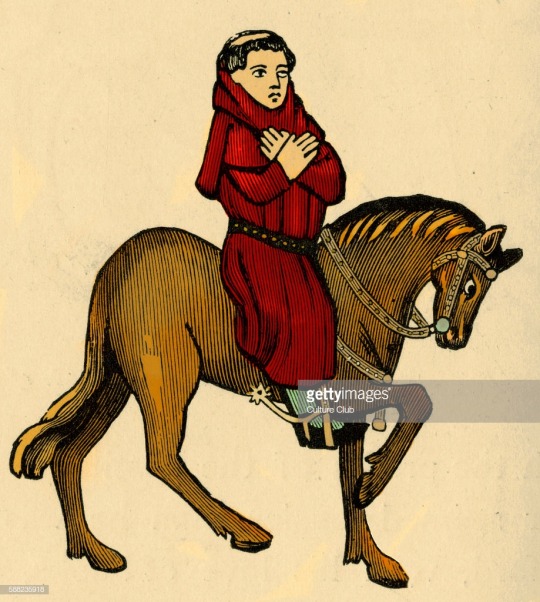
But rather would he give, in case of doubt,
Unto those poor parishioners about,
Part of his income, even of his goods.
Enough with little, coloured all his moods.
Wide was his parish, houses far asunder,
But never did he fail, for rain or thunder,
In sickness, or in sin, or any state,
To visit to the farthest, small and great,
Going afoot, and in his hand, a stave.
This fine example to his flock he gave,
That first he wrought and afterwards he taught;
Out of the gospel then that text he caught,
And this figure he added thereunto-
That, if gold rust, what shall poor iron do?
For if the priest be foul, in whom we trust,
What wonder if a layman yield to lust?
And shame it is, if priest take thought for keep,
A shitty shepherd, shepherding clean sheep.
Well ought a priest example good to give,
By his own cleanness, how his flock should live.
. . .
He had no thirst for pomp or reverence,
Nor made himself a special, spiced conscience,
But Christ's own lore, and His apostles' twelve
He taught, but first he followed it himselve.
-Canterbury Tales: General Prologue (Translated for modern audiences)
I glimpse the castles of the great lords only at a distance, but I know the market towns and holdfasts, the villages too small to have a name, the hedges and the hills, the rills where a thirsty man can drink and the caves where he can shelter. And the roads the smallfolk use, the crooked muddy tracks that do not appear on parchment maps, I know them too.
- AFFC Brienne V
While acknowledging the pervasive corruption within the Church, Chaucer wasn’t wholly cynical towards the Church and Christianity. He uses the Parson as an exemplary character, and puts him in the group where Chaucer made each person, although very poor, represent all the Christian virtues. The Parson is a model cleric who lives a simple life of poverty, travels far to reach his parishioners, and shares his income and goods with the poorest of them. The Parson practices what he preaches, setting an example for his parishioners, and serves as a representation of the ideals of Christianity. The clergy closer to the aristocrats tend to be corrupt while the ones closer to the poor tend to be virtuous. Meribald would fit right in with the Parson’s group. His speaking of being far from castles, but visiting the towns, holdfasts and villages demonstrate his association with the smallfolk and poorer members of society while foregoing association with the aristocrats. While he is not opposed to aristocrats as shown by his treatment of Brienne, Hyle and Pod, he prefers to be with smallfolk. His parish is effectively the riverlands within his circuit; he always travels far to attend to people, and gives his food to the poorest parishioners. Meribald is to the Faith in this story as the Parson is to the Church in Chaucer’s: he is a representation of his faith’s ideals of humanity, peace, charity and justice. He provides a direct contrast to the corrupt clerics who run the Faith. As Victor Hugo told his son in response to his opposition towards making a bishop, Myriel, "a prototype of perfection and intelligence" in Les Miserables: “I cannot put the future into the past. My novel takes place in 1815. For the rest, this Catholic priest, this pure and lofty figure of true priesthood, offers the most savage satire on the priesthood today.”
His association with the smallfolk can be seen further in his preference among the Seven.
"I have never known a boy who did not love the Warrior. I am old, though, and being old, I love the Smith. Without his labor, what would the Warrior defend? Every town has a smith, and every castle. They make the plows we need to plant our crops, the nails we use to build our ships, iron shoes to save the hooves of our faithful horses, the bright swords of our lords. No one could doubt the value of a smith, and so we name one of the Seven in his honor, but we might as easily have called him the Farmer or the Fisherman, the Carpenter or the Cobbler. What he works at makes no matter. What matters is, he works. The Father rules, the Warrior fights, the Smith labors, and together they perform all that is rightful for a man. Just as the Smith is one aspect of the godhead, the Cobbler is one aspect of the Smith. It was he who heard my prayer and healed my feet."
- AFFC Brienne V
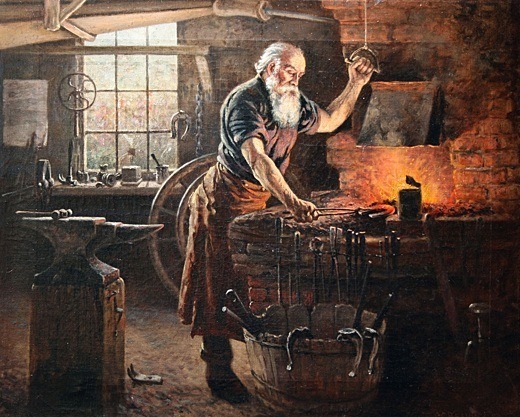
Meribald’s preference for the Smith is very much in line with Jesus and Isaiah of favoring peaceful, productive labor over war and conflict (swords beaten into plowshares). Meribald’s comments on the Cobbler reveal an understanding of the ideas behind it, and it further emphasizes his association with the common people by preferring the common-oriented Smith over the more aristocrat-oriented Warrior. His statement regarding the Smith, and extending it to other tradesmen, even farmers and fishermen, displays a social consciousness, an acknowledgement that the laborers and craftsmen are the ones who actually add value to society and keep it running as opposed to the generally unproductive warrior caste that rules over Westerosi society. As the smith creates the “bright swords of our lords” suggests, he points out that even the martial aristocrats are wholly dependent on this segment of society that they usually look down on. His own personal experience with war would also make him reluctant to favor the Warrior. He himself knows the negative effects war can have just going by the speech he is best known for.
"More less than more. There are many sorts of outlaws, just as there are many sorts of birds. A sandpiper and a sea eagle both have wings, but they are not the same. The singers love to sing of good men forced to go outside the law to fight some wicked lord, but most outlaws are more like this ravening Hound than they are the lightning lord. They are evil men, driven by greed, soured by malice, despising the gods and caring only for themselves. Broken men are more deserving of our pity, though they may be just as dangerous. Almost all are common-born, simple folk who had never been more than a mile from the house where they were born until the day some lord came round to take them off to war. Poorly shod and poorly clad, they march away beneath his banners, ofttimes with no better arms than a sickle or a sharpened hoe, or a maul they made themselves by lashing a stone to a stick with strips of hide. Brothers march with brothers, sons with fathers, friends with friends. They've heard the songs and stories, so they go off with eager hearts, dreaming of the wonders they will see, of the wealth and glory they will win. War seems a fine adventure, the greatest most of them will ever know.
"Then they get a taste of battle.
"For some, that one taste is enough to break them. Others go on for years, until they lose count of all the battles they have fought in, but even a man who has survived a hundred fights can break in his hundred-and-first. Brothers watch their brothers die, fathers lose their sons, friends see their friends trying to hold their entrails in after they've been gutted by an axe.
"They see the lord who led them there cut down, and some other lord shouts that they are his now. They take a wound, and when that's still half-healed they take another. There is never enough to eat, their shoes fall to pieces from the marching, their clothes are torn and rotting, and half of them are shitting in their breeches from drinking bad water.
"If they want new boots or a warmer cloak or maybe a rusted iron halfhelm, they need to take them from a corpse, and before long they are stealing from the living too, from the smallfolk whose lands they're fighting in, men very like the men they used to be. They slaughter their sheep and steal their chickens, and from there it's just a short step to carrying off their daughters too. And one day they look around and realize all their friends and kin are gone, that they are fighting beside strangers beneath a banner that they hardly recognize. They don't know where they are or how to get back home and the lord they're fighting for does not know their names, yet here he comes, shouting for them to form up, to make a line with their spears and scythes and sharpened hoes, to stand their ground. And the knights come down on them, faceless men clad all in steel, and the iron thunder of their charge seems to fill the world . . .
"And the man breaks.
"He turns and runs, or crawls off afterward over the corpses of the slain, or steals away in the black of night, and he finds someplace to hide. All thought of home is gone by then, and kings and lords and gods mean less to him than a haunch of spoiled meat that will let him live another day, or a skin of bad wine that might drown his fear for a few hours. The broken man lives from day to day, from meal to meal, more beast than man. Lady Brienne is not wrong. In times like these, the traveler must beware of broken men, and fear them . . . but he should pity them as well."
- AFFC Brienne V
This is the speech that earned Meribald his notoriety among the fandom. It is one of the few times where GRRM is very on the nose, and hammers his message into the text explicitly. The speech is a beautiful passage that stands as the biggest denunciation of war in the series, and showcases the anti-war stance of Martin, himself a conscientious objector during the Vietnam War. Every battle that the reader has seen firsthand or been informed about is generally through the view of a member of the nobility, including Davos, who while being born one of the smallfolk, is still a nobleman. The lords are first and foremost a warrior caste who have usually trained for battle their whole lives up to that point, and usually go to battle well-armed, armored and mounted. Here, Meribald presents a very thorough, eloquent and articulate view of war through the eyes of the smallfolk who often lack the extensive military training and armaments of the lords, and yet, make up the majority of feudal armies that engage in battle.
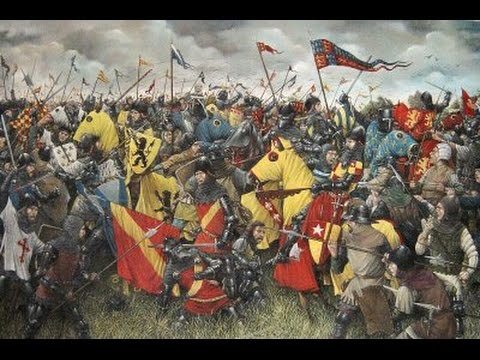
In battle, the smallfolk in these feudal levies can take wounds, both physical and mental, from the injuries sustained in battle, the act of killing itself, the terror of the battle and seeing the people they knew die in gruesome fashion. After battle, they strip the dead of necessities like armor, clothes, weapons and any coin the bodies may have on their persons. Due to the poor supplying of feudal armies, if the infantrymen want to eat, they have to resort to foraging, or taking supplies by force from local smallfolk. They also kill the livestock as part of chevauchee, and rape the local women, since law enforcement is notoriously difficult in warzones. Then, after having undergone so much trauma, some men break during battle and desert. Broken men are deserters suffering from PTSD, usually in an unfamiliar land, where their feudal obligations to serve their lords no longer mean anything nor their fear of divine judgement, but everything takes a backseat to survival. They have often retained their weapons or at least some of them, along with the tactic of foraging. The application of these things can usually result in broken men engaging in banditry to survive. Even when the war is over, the effects of it can remain.
"It is being common-born that is dangerous, when the great lords play their game of thrones," said Septon Meribald.
- AFFC Brienne VII
Meribald’s anti-war attitude is drawn not just from his personal experience as a soldier and broken man, but likely witnessing the destruction and suffering among civilians in the War of the Ninepenny Kings and the War of Five Kings. Along his circuit, he likely has seen villages and towns destroyed and people ravaged by the Lannisters, Brave Companions and Starks. His comments on the smallfolk suffering when the lords go to war is comparable to the observation made by Varys: "The High Septon once told me that as we sin, so do we suffer. If that's true, Lord Eddard, tell me … why is it always the innocents who suffer most, when you high lords play your game of thrones?” The smallfolk always bear the greatest costs of war from the broken men to the foraged, and even massacred, smallfolk. With Meribald’s words, we can look at Tyrion’s description of the army defeated by Robb at Oxcross being largely made up of “raw—apprentice boys, miners, fieldhands, fisherfolk, the sweepings of Lannisport,” in a new light, with much of the people killed in battle being poor smallfolk who are there by circumstance.
They can often be the group in battle to suffer the highest casualties and receive the fewest personal gains. The former is especially true given as Gendry points out: "Knights and lordlings, they take each other captive and pay ransoms, but they don't care if the likes of you yield or not." Highborn combatants are worth ransoms or can make useful hostages, creating an incentive to capture rather than kill them while lowborn combatants have no wealth or connections to call upon, and as prisoners-of-war would be just more mouths to feed in an army that crawls on its stomach, leaving little incentive to capture them.Excluding chivalry, with exceptions like Elia Martell, Lord Hewitt’s daughter and Bracken’s daughter, highborn women usually have some protection from rape via their status with anyone knowing her family would have swords to call upon to defend her honor while women among the smallfolk have no such protection with no swords to call upon. The lords can be rewarded with lands and castles for their services and ransoms from captured lords or knights in service while the smallfolk see hardly any of those rewards, except small ones such as the loot they can obtain if they sack someplace, or strip a dead body. If they’re really lucky, and perform some great feat, like saving a lord in battle, they can be richly rewarded with gold, lands, a keep and their sons serving as squires, or essentially be welcomed into the nobility and get a foot through the door into lordship for their families. That was the case with Ser Bartimus and the man-at-arms who saved Ser Harys Swyft in the Battle of the Blackwater. To borrow from the American Civil War, Westerosi wars can be perfectly summed up as a “rich man’s war, but a poor man’s fight.”
We come across examples of both broken men and raided smallfolk in Brienne’s POV with the raid on Saltpans led by Rorge. We see much of it caused by broken men, and an example of a lord neglecting the obligations of his status.
"Back on the road, the septon said, "We would do well to keep a watch tonight, my friends. The villagers say they've seen three broken men skulking round the dunes, west of the old watchtower.”
"Only three?" Ser Hyle smiled. "Three is honey to our swordswench. They're not like to trouble armed men.”
"Unless they're starving," the septon said. "There is food in these marshes, but only for those with the eyes to find it, and these men are strangers here, survivors from some battle. If they should accost us, ser, I beg you, leave them to me."
"What will you do with them?"
"Feed them. Ask them to confess their sins, so that I might forgive them. Invite them to come with us to the Quiet Isle."
-AFFC Brienne V
"Ser Quincy is an old man," said Septon Meribald gently. "His sons and good-sons are far away or dead, his grandsons are still boys, and he has two daughters. What could he have done, one man against so many?"
- AFFC Brienne VI
It was Hyle Hunt who finally put words to what all of them had realized. "These are the men who raided Saltpans."
"May the Father judge them harshly," said Meribald, who had been a friend to the town's aged septon.
- AFFC Brienne VII
Where everyone else, is faulting Ser Quincy Cox for not defending his town when it was brutally sacked by Rorge, Meribald is the only one that tries to express some understanding towards Cox. He says that Ser Cox was likely afraid for his family as well as himself, and knew he couldn’t have done much against the raiders. This can be partly due to Meribald himself being a veteran, and knowing what it is like to be afraid facing an onslaught. He was also willing to help three broken men who he knew might be dangerous and potentially harm him by giving them food, knowing they might be starving, and an offer to perform services for them and take them to the Quiet Isle for refuge. One of the closest times we’ve ever gotten to Meribald judging and badmouthing someone is his comments regarding the hanged raiders of Saltpans. He doesn’t show pity for the hanged men likely being broken men despite his words in his famous speech, and deviates from “May the Father judge them justly” to “May the Father judge them harshly.” Of course, in this case, his anger is completely and understandably justified. Meribald’s comments regarding Ser Cox when taken with his sympathy towards broken men show him to be a compassionate man who tries to be understanding and avoid judging people too harshly. This can be partly given to him acknowledging his own mistakes in the past, and thus, be less judgmental towards others’ shortcomings as opposed to someone like the inquisitorial High Sparrow
Meribald’s background largely influenced his own approach to life and faith. His experience in the War of the Ninepenny Kings gave him anti-war views, and his past mistakes helped him to acknowledge that people are people and anyone can fall off track. His experience as one of and interactions with the smallfolk as well as the hardships they face explain his smallfolk-centric worldview. We can look at a historical figure in Catholic Church hagiography that likely inspired Meribald’s character.
Meribald’s Real-Life Counterpart
If there is any historical influence for Meribald, it should be obvious for anyone who has even a basic knowledge of Catholic saints: Francis of Assisi. To give a little basic info, he is one of the patron saints of Italy and the environment, the eponym for San Francisco (in a way fitting with the city’s liberal reptuation) as well as Pope Francis and founder of the Order of Friars Minor, more commonly known as the Franciscan Order. He is also described as the first to receive the stigmata, or receive wounds/marks on his hands, feet and side corresponding to Christ’s wounds from his crucifixion, and credited with creating the first Nativity scene. Francis is a very popular saint, even in Protestantism with Franciscan orders in the Anglican and Lutheran churches, given he embodies many of the qualities that one would look for in a saint. It is said no one was more dedicated in imitating Christ and carrying out the Christ’s work in Christ’s way than Francis to the point that he is even sometimes described as alter Christus, or literally “another Christ.” It comes as no surprise then, that he was canonized less than two years after his death.
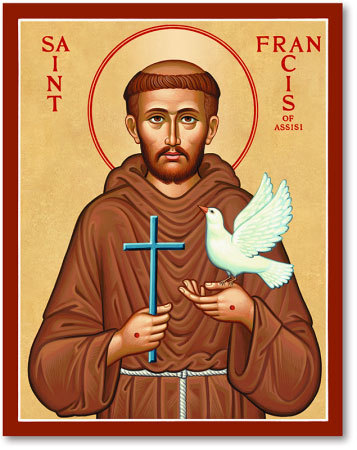
Francis was born Giovanni di Bernardone in 12th century Assisi, the son of a wealthy cloth merchant and a noblewoman from Provence. He was informally called Francesco or “the Frenchman” by his father to honor his business success and enthusiasm for French things. Francis wore lavish clothes, and was known to be one of the biggest party animals in town. Albeit, better born than Meribald, Francis shared the commonality of being a veteran whose war experience caused him to re-evaluate his life. Francis originally wanted to be a knight joining in Assisi’s war against Perugia. He was taken prisoner at the Battle of Ponte San Giovanni, and spent a year imprisoned in Collestrada where he suffered a long fever. During the fever, he started to re-evaluate his life. Two years later, his search for victory and glory lead him to leave to fight for Apulia, serving under Count Walter III of Brienne (I kid you not). Apparently, a strange vision made him return home to Assisi. Francis later decided to foreswear his inheritance and become a wandering beggar, and taking Christ’s words literally, stripped himself of the lavish clothes he once liked to wear, and replaced them with a coarse woolen tunic tied with a knotted rope in place of a belt. He traveled from place to place, working to rebuild ruined churches in the countryside of Assisi and Umbria, nursing the sick, including the outcast lepers and giving alms to the poor. He preached brotherly love, peace and penance to the ordinary people in the countryside despite not being an anointed priest. Francis, as Meribald does, celebrated and venerated his poverty, and traveled the countryside preaching and giving aid to the poor. Win Wenders, when talking about the film he made about Pope Francis, described St. Francis as having “an incredible social consciousness, and identified with the outcasts and the poor of his time, and really lived a life of radical solidarity with the poor and outcasts.”
Francis also went so far as to go over enemy lines during the Fifth Crusade to speak with Sultan al-Kamil of Egypt to convert him, or be martyred in the attempt (he failed at both). Francis and Meribald fought wars in their youth only to become men of peace when they grew older in both word and action. There are legends such as Francis healing a leper through prayer. Another being one of his friars scolding three robbers for stealing food and drink from Francis’s monks, and Francis responding by having his friar apologize to them and give them bread and wine. Those three robbers would be moved enough to join Francis’s order. It reminds me of Meribald’s comments regarding what to do if three broken men in the dunes come upon them: "Feed them. Ask them to confess their sins, so that I might forgive them. Invite them to come with us to the Quiet Isle."
Francis is the patron saint of animals and the environment given he displayed kindness and respect towards animals in a way Meribald wouldn’t disapprove of if Dog is anything to go by. He saw nature as a “mirror of God,” and he referred to animals as “brothers and sisters.” His attitude towards animals would have been met with approval from the SPCA and other animal rights organizations with words such as “Not to hurt our humble brethren is our first duty to them, but to stop there is not enough. We have a higher mission - to be of service to them whenever they require it.” There are stories and legends of birds gathering to hear him preach, half-frozen bees crawling towards him to be fed and the famous tale of the Wolf of Gubbio.

The story goes that the town of Gubbio was terrorized by a large wolf that preyed originally on its flocks, then also began to feed on the townspeople and finally switched to eating only people. It supposedly could not be harmed by an weapon, devouring anyone who tried to kill it. Francis went up to confront it and chastised the wolf for its actions, with the wolf responding by bowing its head in submission. Francis than made a deal with the wolf: “I promise thee that thou shalt be fed every day by the inhabitants of this land so long as thou shalt live among them; thou shalt no longer suffer hunger, as it is hunger which has made thee do so much evil; but if I obtain all this for thee, thou must promise, on thy side, never again to attack any animal or any human being; dost thou make this promise?" The wolf placed a forepaw in Francis’s outstretched hand in agreement to the oath. Francis then walked with the wolf following him to town to the surprise of the townspeople. The wolf died two years later, and the town was saddened given he had become a symbol of Francis’s sanctity and divine power. The legend says they gave the wolf an honorable burial and later built a church at the site.
Crazy enough, during the renovation of the Church of Saint Francis of Peace in 1872, the same church where the wolf was said to be buried, under a slab near the wall of the church they found the skeleton of a large wolf that was likely several centuries old. They reburied the wolf skeleton inside. My guess is that in real-life, a wolf may have preyed on Gubbio’s flocks, and Francis came up with a simple solution: feed the wolf and it wouldn’t have to feed on their flocks. The description of the Wolf of Gubbio does also bring to mind a certain canine in the series.
“They say the pack is led by a monstrous she-wolf, a stalking shadow grim and grey and huge. They will tell you that she has been known to bring aurochs down all by herself, that no trap nor snare can hold her, that she fears neither steel nor fire, slays any wolf that tries to mount her, and devours no other flesh but man."
- AFFC Brienne V
I wouldn’t be surprised if a similar situation happens with Meribald regarding a seemingly invincible, large wolf terrorizing the riverlands, devouring its flocks and people: Nymeria. Dog wouldn’t be able to protect him from Nymeria if she came upon him, and Meribald, being a man of peace, would deal with her in a way that men of war have tried and failed to do. I’m willing to bet money on it.
Conclusion:
Meribald plays the role of guide for his fellow travelers as well as the reader, and the mouthpiece of the author on war. Being the only one among the group who is one of the smallfolk and not the nobility, he provides a much needed perspective on war through the eyes of 99% of the population. His good-natured, country bumpkin-esque appearance masks an intelligent man with profound insight on war, society and faith. He probably has a worse background prior to joining the Faith and shortly after than most of the Most Devout and High Septons, but he turned out a better man than any of them. He is the closest to a saint we’ve seen in this series, more so than any other septon we’ve encountered. Hopefully, I think we will meet him again in the series, and I look forward to hearing what more insights he has.
#asoiaf#a song of ice and fire#septon meribald#a feast for crows#team smallfolk#game of thrones#got#brienne the beauty#brienne#faith#faith of the seven#antiwar#stfrancis#saint francis#saint francis of assissi
83 notes
·
View notes
Text

St. Francis of Assissi - The Cross in the Woods
17 notes
·
View notes
Text
Able to say, ‘I need you’
"For Saint Francis of Assissi, poverty was the key to love. The poor person lives in dependence on others. Poverty is being able to say, 'I need you,' 'I am incomplete without you.'" -Ilia Delio, The Primacy of Love
10 notes
·
View notes
Text








Happy All Saints Day!
Today is the last day to get 10% off all saint chaplets!
Don't forget to go to Mass today!
#hndmdbystephanie#etsy#catholic#catholic gift#catholic saints#all saints day#st joan of arc#st faustina#st jude#st francis chaplet#st francis of assissi#st francis#st therese chaplet#st therese#st therese of lisieux#st patrick#st pio#padre pio
28 notes
·
View notes
Photo

Canto XI. The Fourth Sphere: The Sun / The Doctors of the Church; The Second Garland of Souls; Saint Thomas Acquinas Recounts the Life of Saint Francis of Assissi; Denunciation of the Monastic Orders, Anonymous Italy (Venice) 1491, 15th century, Harvard Art Museums: Prints
Harvard Art Museums/Fogg Museum, Gift of Philip Hofer
https://www.harvardartmuseums.org/collections/object/251808
33 notes
·
View notes
Photo

A day late but wanted to acknowledge the celebration of St Francis of Assissi ( October 3, 1226), the patron saint of animals. ❤️
Thank you so much! I love Saint Francis🙏🏻❤️❤️❤️❤️❤️
21 notes
·
View notes
Text

Stigmata Phenomena
Stigmata is a Catholic phenomenon, used to describe the appearance of the wounds of Christ on a pious saint or Christian believer. It has been long debated by many who believe stigmata is instead a psychosomatic effect brought on by intense prayer. Stigmatics themselves are the main source of mystery for thousands of Christian believers.
Stigmata can exists in two forms, visible and invisible. Invisible wounds are those covered by the forces of God for the inner comfort of the sufferer. Visible wounds appear on the side, palms, feet and head, and often appear and disappear in the space of a few hours. They can appear in one area alone, or all areas at once. Often, intense bleeding accompanies them, and the period before they appear is characterized by depression and weakness. Some stigmatics report feeling whips across their backs.
The first recorded case of these wounds was in the year 1222, by a man names Stephen Langton of England. St. Francis of Assissi, a famous follower of Jesus, experienced wounds in 1224. The wounds can be experienced by both men and women. One of the more famous female stigmatics was St. Catherine of Siena, who experienced invisible wounds on her hands and feet. An interesting fact about stigmata is that it corresponds with the Passion and Death of Christ. Many wounds appear during the Last Supper, and the holy days of Easter. They disappear on Easter itself. Stigmatics reportedly speak to visions of Christ and angels during their trials, and smell strange scents. There are even reported cases of the blood types not matching between stigmata and wounds.
Stigmata has been reported everywhere from America to Italy. There are cases in France, Spain, England, and Germany. The count of these victims has stopped at 345. It is believed that there are many more, however. Among this count are some of the most famous saints, such as St. Frances of Rome, St. Gertrude, St. Collette, St. John of God, and St. Marie of the Incarnation. They span many religious orders, including Dominican priests, Augustinian monks and the Poor Clare nuns.
One of the more interesting theories to explain this phenomenon is the idea of “theological placebo effects.” According to this line of thought, stigmatics are so emotionally and physically tied to their belief that they experience a state of mind similar to raptures. It is a fact that the immune system can be controlled by the waking mind, and in some cases, a heartbeat can be consciously slowed. It is this belief that leads some to think that the wounds of the stigmata are personally, albeit unconsciously, produced.
Stigmatics still exist today. There were a reported 20 in the nineteenth century, and their numbers are diminishing. One of the most famous current stigmata is Georgio Bongiavani, who has stigmata on his hands and forehead. His religious wounds cannot be explained by any sources, and according to several news reports they appear and disappear at will.
11 notes
·
View notes